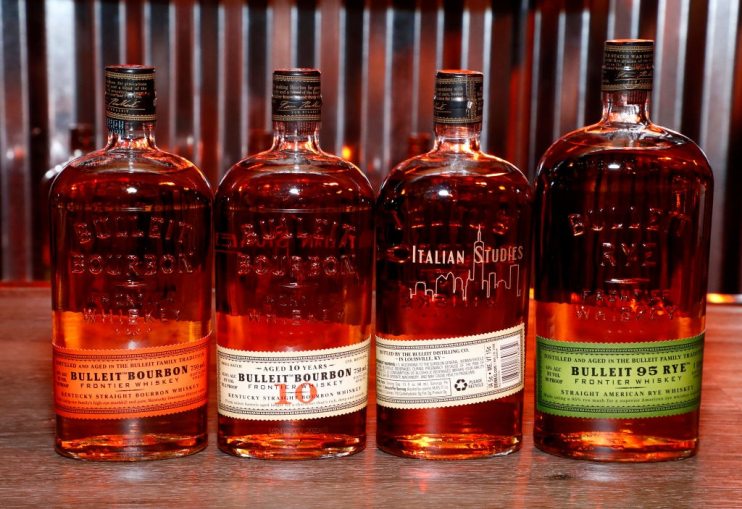Drink up, America. Whisky tariffs should be ditched for good in a cross-Atlantic pact

Scotch whisky distillers were the belle of the ball earlier this year, when the UK and US announced they would suspend tariffs on distilled spirits imported to each respective country by the other.
Then Trade Secretary Liz Truss said the announcement was “fantastic news for major employers like Scotch whisky.” The suspension is temporary. And while Truss, now the Foreign Secretary, is right to celebrate the deal, there is no reason not to make the suspension permanent.
While many of us may have been drinking a little more during lockdowns, the whisky industry suffered greatly. It’s had a strong rebound but it’s not out of the woods. UK-wide measures made travel into all parts of the country from the US practically impossible. The lack of tourism resulted in serious economic damage to the industry.
In 2019, two in every three visits to Scotch Whisky centres were from international visitors, American travellers made up 12.5 per cent of those numbers.
The spirits industry also benefits greatly from duty free sales in airports. But, with tourism having all but evaporated during the pandemic, those sales also dried up.
If tariffs are a smart move in the short-term, they are also a clever play for a permanent deal. It would provide a concrete pact with the US to prove the face of the new outward-facing global Britain post-Brexit, while hopes of an all-out free trade agreement have faltered. Spirits tariffs are a vestige of the time before the UK left the European Union; they represent the old order of anti-free market, tariff-laden policies. Symbolically, they can also prove a triumph of our future.
During the suspension, there is an ongoing review to scrap the tariffs completely. Sources from the other side of the Atlantic are confident that full termination will result in the US reciprocating by removing its own tariffs permanently too. According to Liz Mair, a British and American political consultant whose firm advises several clients on free trade matters, “nothing in life is certain except for death and taxes, but the fact is, there is chatter in DC that the UK terminating its tariff on American whisky would be a highly effective way of procuring or at least heavily incentivising reciprocal action on this side of the pond.”
It’s primarily a question of speed, then. It’s a truism in business to say the surer the certainty, the stronger the performance. But for the whisky sector, this is particularly true: one cannot instantly ramp up production of a 12-year-old single malt to meet future demand, so sound economic forecasting is vital.
The difference of several months could be significant, including for the Exchequer. Higher tariffs translate into reduced sales, and Covid restrictions have already eaten into those quite heavily for a considerable amount of time.
Duty free sales may not add to government coffers, but onsite sales at distilleries certainly do and with more Americans streaming back into the country keen to head North for golf and whisky tours, the government could fast-track the Scotch whisky recovery simply by putting its faith in the job-supporting nature of a tariff-free and enduring bilateral trade between the two countries.
In her tenure as Trade Secretary, Liz Truss was firm in her belief that tariffs are a drag. Her successor, Anne-Marie Trevelyan, must be equally ambitious in pursuing a cross-Atlantic alliance.